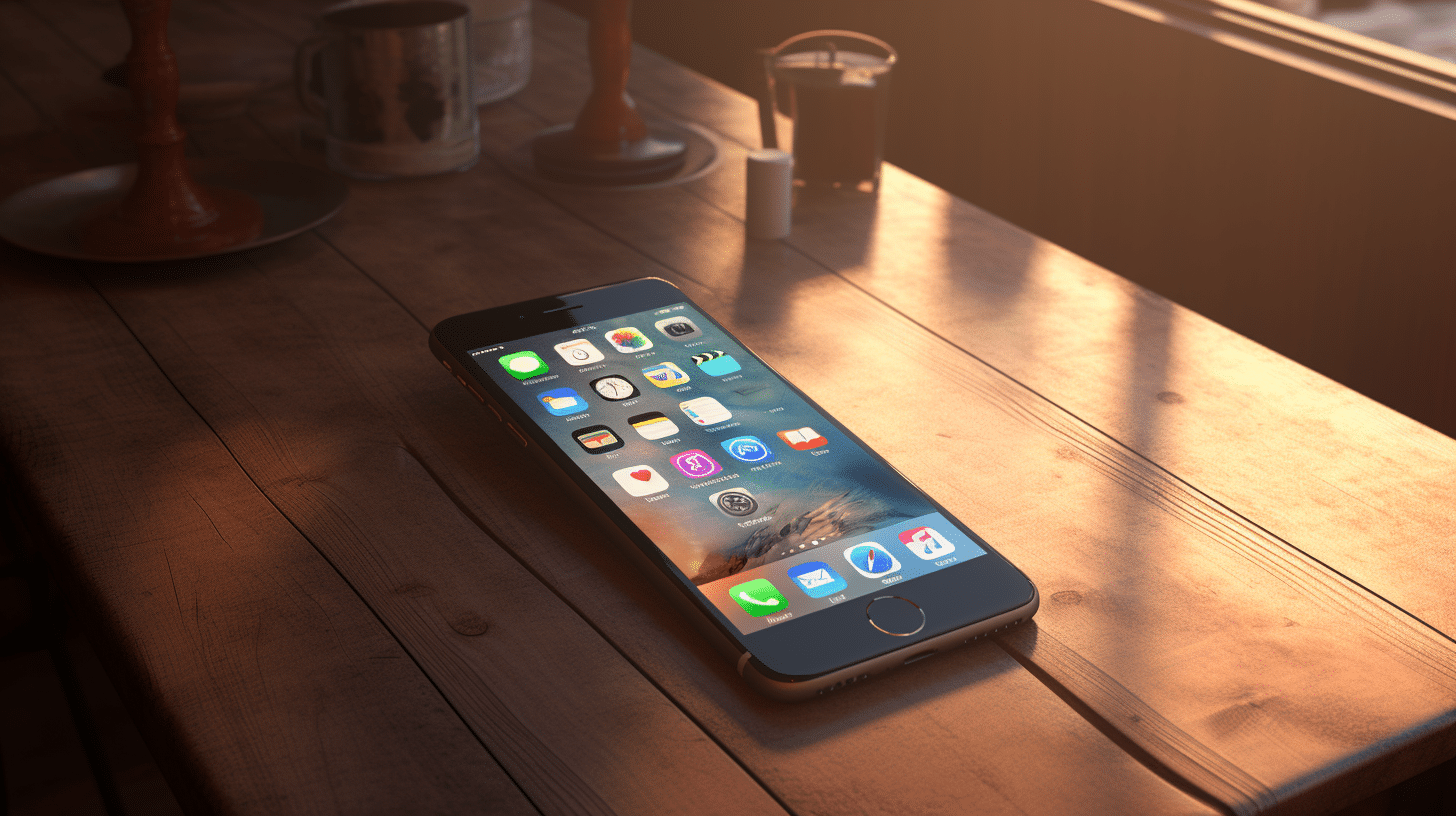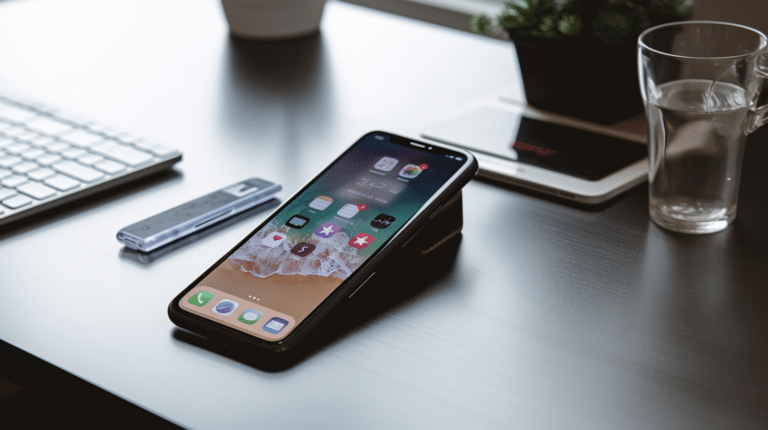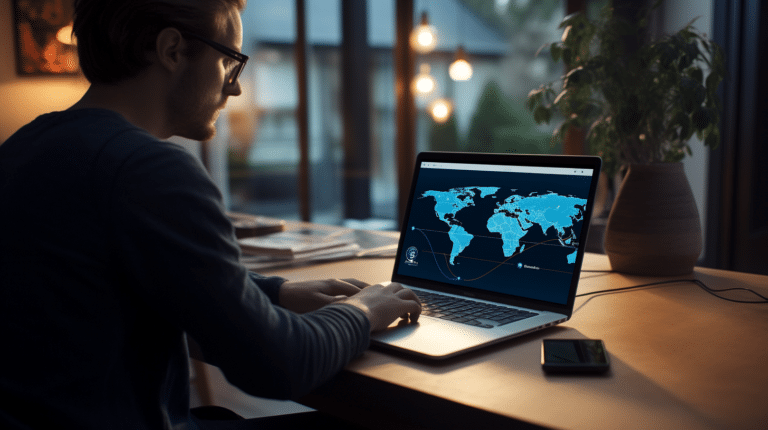Virtual Private Networks, or VPNs, have become increasingly popular as people seek to protect their online privacy and secure their data. On an iPhone, using a VPN provides an added layer of security, helping to safeguard sensitive information while browsing the internet or using public Wi-Fi networks. By encrypting data and masking the user’s IP address, VPNs offer a powerful tool for safeguarding personal information and maintaining anonymity online.
But not all VPNs are created equal, and while some may boast enhanced security features and impressive speeds, others may not provide the same level of protection. Understanding the essentials of how VPNs work on iPhones and the factors to consider when selecting a VPN service will help users make an informed decision that benefits them most. With the right VPN in place, an iPhone’s internet connection can become far more secure, ensuring that personal data remains private and users can enjoy the internet without worrying about intrusive snooping or data breaches.
Key Takeaways
- VPNs on iPhone provide enhanced security and privacy while browsing the internet or using public Wi-Fi networks
- Choosing the right VPN service depends on factors such as security features, connection speeds, and user-friendly apps
- Using a VPN on iPhone may have potential risks and limitations, but it can also offer compatibility with other Apple devices and additional benefits to users.
Setting up a VPN on iPhone
Setting up a VPN on your iPhone can be done in two primary ways: by installing a VPN app from the App Store or by manually configuring VPN settings. In this section, we will go over both methods.
Installing a VPN App from the App Store
One of the easiest ways to set up a VPN on your iPhone is by installing a VPN app. There is a wide variety of VPN apps available on the App Store, ensuring compatibility with Apple’s iOS platform.
To get started, follow these steps:
- Open the App Store on your iPhone
- Search for a VPN app by typing “VPN” in the search bar
- Browse through the available options and choose a reputable VPN app
- Tap on the app to access its description page, and then tap “Install” to download and install the VPN app on your iPhone
- Once installed, launch the VPN app and follow the in-app instructions to configure and activate the VPN service
Popular VPN apps include ExpressVPN, NordVPN, and Surfshark. It is crucial to select a reliable and trustworthy VPN service to ensure the utmost protection for your privacy.
Configuring VPN Settings Manually
In some cases, you may prefer to configure VPN settings manually on your iPhone, particularly if your preferred VPN service does not offer an app. Manual configuration allows for greater control over VPN settings and can sometimes provide faster connections.
To manually configure your iPhone’s VPN settings, follow these steps:
- Go to the Settings app on your iPhone
- Scroll down and tap on “General”
- Tap on “VPN” to open the VPN settings menu
- Tap on “Add VPN Configuration…” on the VPN settings page
- Fill in the necessary information provided by your VPN service, such as server address, encryption protocol, and authentication information
- Once you have entered all the required details, tap “Done” in the top right corner to save the configuration
- From the VPN settings menu, switch on the VPN connection to begin using the VPN service
Keep in mind that you will need to obtain the necessary configuration information from your VPN service provider to set up a manual connection. Also, be aware that manual configuration may require more frequent updates and adjustments to maintain optimal functionality.
Utilising a VPN on your iPhone is an excellent way to enhance your online security and privacy. Whether you choose to install a VPN app or manually configure your VPN settings, remember to choose a reputable VPN service and stay diligent about maintaining your connection’s security.
Key Features of VPN on iPhone
Security and Encryption
One of the main advantages of using a VPN on your iPhone is the increased level of security it provides. A VPN ensures that your data is encrypted when it is transmitted over the internet, making it difficult for hackers, eavesdroppers, and other malicious actors to intercept and access your information. This is especially important when using public Wi-Fi networks or when transmitting sensitive data.
Additionally, VPNs use strong encryption algorithms to secure your connection, which in turn enables a higher level of privacy and protection when you access the internet on your iPhone.
IP Address Hiding
Another key feature of using a VPN on your iPhone is the ability to hide your IP address. When you connect to a VPN server, it assigns you a new IP address that corresponds to the VPN server’s location. This effectively masks your real IP address from websites, apps, and services that you access while connected to the VPN.
By concealing your IP address, VPNs make it difficult for third parties to track your online activity and tie it back to your personal identity. This feature is particularly useful for maintaining your privacy, especially in situations where you would like to remain anonymous or avoid targeted advertisements.
Location Privacy
A VPN on your iPhone also allows you to maintain location privacy by allowing you to select the location of the VPN server you connect to. In doing so, you are able to access content that might be restricted or unavailable in your actual physical location.
For example, by connecting to a VPN server in another country, you can bypass geographical restrictions to access streaming services, news websites, or social media platforms that are not available in your region. This feature is particularly helpful for travellers who wish to access familiar content while abroad or for users who want to experience the internet without location-based limitations.
To summarize, a VPN on your iPhone provides an extra layer of security and encryption, allows you to hide your IP address, and enables location privacy by allowing you to connect to servers in different locations. These features help users ensure a more secure and private browsing experience on their iPhone devices.
Selecting a VPN Service for iPhone
When choosing a VPN service for your iPhone, there are several factors to consider. In this section, we will discuss Free vs. Paid VPNs, Reputation and Trustworthiness, and Performance and Compatibility.
Free vs. Paid VPNs
While there are many free VPN services available, they may not offer the same level of security, privacy, and performance as paid options. Free VPNs can be more likely to log personal information, sell user data to advertisers, or have slower connection speeds due to overcrowded servers. A paid VPN provider, such as NordVPN, ExpressVPN, or Surfshark, often provides better overall service, including many features and faster speeds.
Reputation and Trustworthiness
The reputation of a VPN provider is vital in determining its trustworthiness. A reliable VPN service should have a transparent privacy policy and a strong history of protecting user data. Research the provider’s history and read reviews from users and industry experts to gain insight into their performance and commitment to user privacy. Providers like NordVPN and ExpressVPN are known for their positive reputation and trustworthiness in the VPN industry.
Performance and Compatibility
When selecting a VPN service for your iPhone, it’s essential to ensure that it is compatible with the iOS operating system and offers reliable performance. iOS-compatible VPN services should provide dedicated applications, regular updates, and fast connection speeds without compromising security.
Factors to consider for performance and compatibility include:
- Connection speeds: Choose a provider with fast servers to ensure smooth browsing and streaming experiences.
- Server locations: A VPN service with a wide range of server locations will allow you to access content from various regions and improve connection speed by selecting a server close to your location.
- Ease of use: The VPN app should have a user-friendly interface, making it easy for iPhone users to navigate and adjust settings as needed.
- Customer support: Opt for a VPN provider with responsive and helpful customer support to make sure you can quickly resolve any issues that may arise.
In conclusion, selecting an appropriate VPN service for your iPhone involves considering factors such as cost, reputation, and compatibility. Thorough research, which includes reading user reviews and understanding a provider’s privacy policy, will ensure that you choose a VPN service that meets your personal needs and requirements while enhancing your iPhone’s privacy and security.
Potential Risks and Limitations
Using a VPN on your iPhone can provide numerous benefits in terms of security and privacy. However, there are potential risks and limitations associated with using a VPN that users should be aware of.
One of the main risks of using a VPN is related to the security of the VPN provider itself. If the provider has security weaknesses within their client, it could lead to a compromised connection and expose user data. For instance, an investigation into the security and privacy of iOS VPN applications revealed that even encrypted VPN tunnels could be vulnerable if not properly configured. Therefore, it’s crucial to choose a reputable VPN provider to minimise security risks.
Another risk comes from free VPNs. Although they might be attractive due to their zero cost, free VPN providers often lack comprehensive security measures in place and may even collect and sell user data to third parties. This directly undermines one’s aim for online privacy. Furthermore, free VPNs are often subject to bandwidth limitations and throttling, resulting in slower connection speeds.
Using a VPN does not make you immune to identity theft or hacking attempts. If you use weak passwords or engage in unsafe online practices, such as clicking on phishing links or downloading malware, you are still at risk of being targeted by hackers and criminals.
Moreover, VPNs can be vulnerable to third parties in cases where the VPN service logs personally identifiable information (PII). This log data could be obtained by government agencies, hackers, or other parties with malicious intentions. To mitigate this risk, seek out VPN providers with strict no-log policies.
Lastly, it is essential to consider the jurisdiction of your VPN provider. Some jurisdictions have data retention laws that require VPN providers to maintain logs, which can pose a risk to user privacy. To ensure maximum protection, choose a VPN provider based in a country with strong privacy laws and non-invasive government surveillance.
In conclusion, using a VPN on your iPhone can significantly enhance your security and online privacy. Nevertheless, it is crucial to be aware of potential risks and limitations to make informed decisions when choosing the right VPN service.
VPN Compatibility with Other Apple Devices
Virtual Private Networks (VPNs) are essential tools for enhancing privacy and security online. A VPN creates an encrypted connection between your device and a remote server, effectively masking your IP address and preventing unauthorized access to your data while using the internet. On an iPhone, VPN functionality is often integrated into the iOS platform through native support.
Apple devices such as iPads and Macs also offer VPN compatibility. When you use a VPN on your iPad, it provides similar benefits as using it on your iPhone. It will help you protect your privacy and access geo-restricted content on your tablet device, ensuring a secure browsing experience. Many VPN providers offer applications that can be easily installed on both iPhone and iPad, making it simple to maintain privacy across multiple Apple devices.
Macs are also compatible with VPN services, though the setup process can be slightly different than on iOS devices. VPN providers often have dedicated apps designed specifically for macOS, ensuring optimum performance and ease of use on Apple computers. Configuring a VPN on a Mac can be done via the built-in macOS Network settings or through the VPN provider’s app, depending on your preference and the provider’s offerings.
In addition to iPhones, iPads, and Macs, VPN services generally support a wide range of devices and operating systems, often including Windows, Android, and Linux. This means you can benefit from a consistent and secure online experience across multiple platforms, ensuring seamless integration with your daily routine.
Selecting a VPN service that is well-vetted and reliable is crucial for maintaining your online privacy and security. It is essential to consider factors such as the VPN provider’s reputation, the extent of server coverage, and compatibility with various devices and operating systems. By choosing a high-quality VPN service, you can safeguard your data and enjoy a secure browsing experience on your Apple devices, as well as other devices in your technology arsenal.
Frequently Asked Questions
Should I enable VPN on my iPhone?
Using a VPN on your iPhone can enhance your privacy and security, especially while connected to public Wi-Fi networks. It encrypts your internet traffic and routes it through a remote server, making it difficult for third parties to track your online activities. If you value privacy and want to access content that may be restricted in your region, consider enabling a VPN on your iPhone.
How to disable VPN on iPhone?
To disable a VPN on your iPhone, go to “Settings > VPN”. Toggle the switch off to disconnect from the VPN service. If you want to remove a VPN profile completely, navigate to “Settings > General > VPN,” select the profile you want to remove and tap “Delete VPN.”
Does iPhone have a built-in VPN?
iPhones do not have a built-in VPN, but they do support VPN connections via third-party apps available in the App Store. Apple’s iOS provides integration with these VPN apps, making it easy to configure and manage VPN settings.
Which is the best VPN for iPhone?
There is no one-size-fits-all answer to this question since the best VPN depends on your specific needs and budget. Some popular and reputable VPNs for iPhone include ExpressVPN, NordVPN, and CyberGhost. It’s important to choose a VPN that offers robust encryption, fast connection speeds, and a no-log policy to protect your privacy.
How can I set up a free VPN on iPhone?
To set up a free VPN on your iPhone, download a reputable VPN app from the App Store, such as TunnelBear, Windscribe, or ProtonVPN. Once installed, open the app and follow the on-screen instructions to create an account and configure the VPN settings. After successful configuration, connect to the VPN service using the app or the VPN toggle in your iPhone’s settings.
Are iPhone VPNs pre-installed?
iPhones do not come with pre-installed VPNs. However, the setup process for third-party VPN apps is simple and straightforward. Browse the App Store to find a VPN that suits your needs, download and install the app, and follow the provided instructions to get started.




